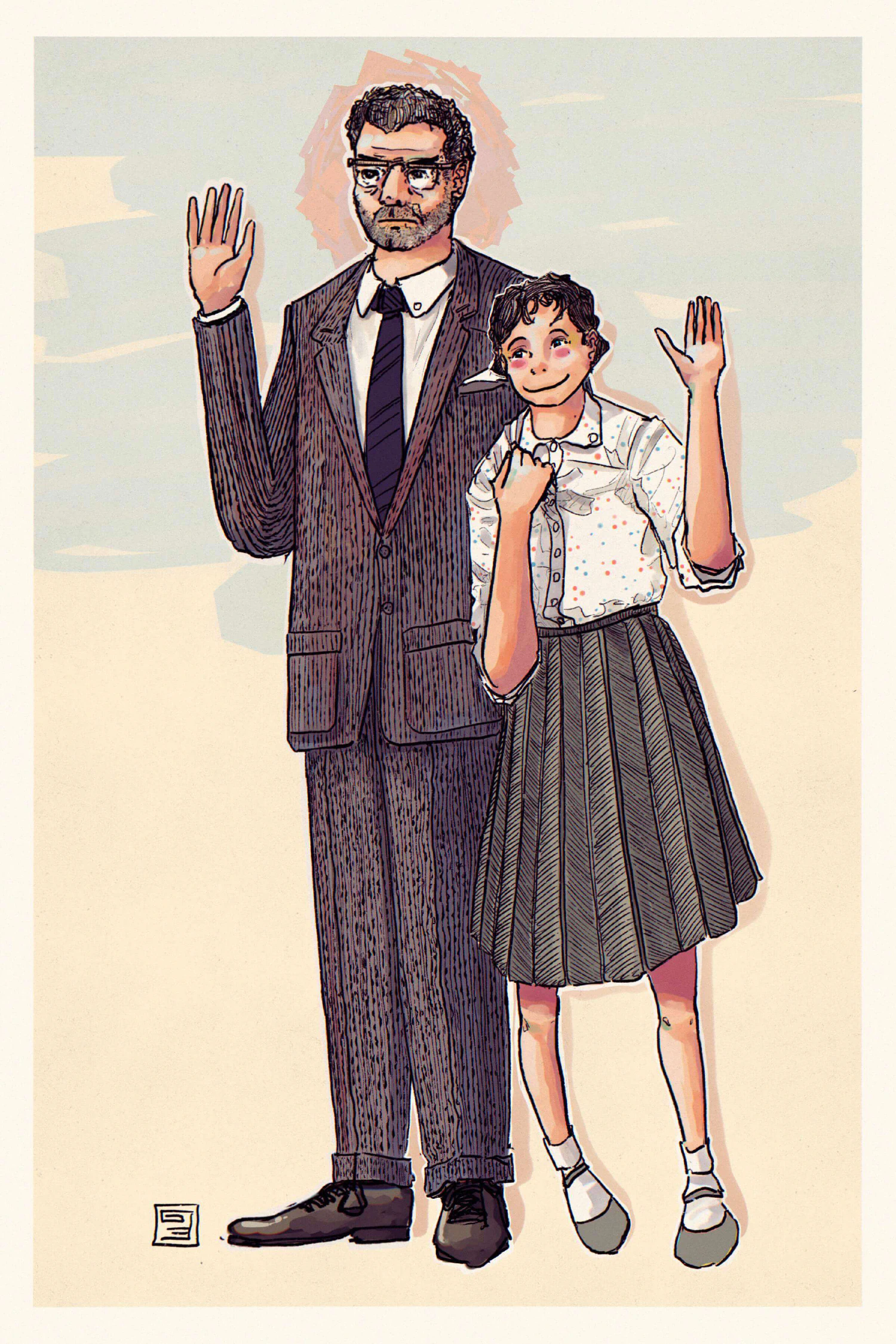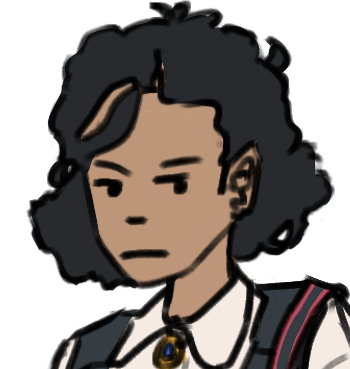NEW Story: Sunday Morning
Baron, the Father

This article is not part of Vekllei canon. It may be old, obsolete or just a bit of fun.
✿ This article was featured in Issue #5 of the Atlantic Bulletin
People are not sure what to make of Baron. They are not sure what to make of his daughter, Tzipora, either. To that end, they are lucky to have found each other.
His obscurity is part of a severe disposition, made obvious by his astonishing disinterest in friends and hobbies. When he finishes work, he listens to the radio, prepares supper, and goes to bed. His unrelenting seriousness is mitigated by his general passivity — Baron is a man totally in control, who keeps to himself and does not take issue with what goes on around him. For his seriousness he is not particularly judgemental or opinionated. To call him boring would be a poor characterisation; he simply feels he has done enough and is not looking to complicate the basic equations of his life.
Tzipora (Zelda to him) complicates this equation. She’s similar to him in many ways, with her conservative personal disposition and humble lifestyle. She does not make a very good teen-ager.
“It’s funny you say that. I was talking to her the other day, and she was talking about how nice it was to have some peace and quiet,” Baron once confided in Ayn. “Of course, she looks very young, so sometimes you have to remind yourself that she’s not a child. She’s not thirteen, she’s nineteen, and very unusual, I think. She’s very smart but she doesn’t let that on much.”
Tzipora did not really have “phases” — Tzipora was Tzipora, eternal. But she was a much more emotionally attuned person, and her highs were higher and her lowers were lower than anything Baron had felt in decades.
He was not always so unfeeling. Baron’s Ashkenazim parents were pulled straight from the bubbling diaspora of Eastern Europe. They met in the labour zionist movement, but fell out of love with professional organising and immigrated to a struggling Vekllei to work in the national hydroelectricity scheme, among thousands of immigrants employed by the Thunderburo.
He was born in 2027 and was not very interested in school as a child. He was rebellious and obstinate, and had only vague ambitions of acquiring a trade certificate in motorcycle repair. His sister, Amelie, died of tuberculosis when he was 11. That was about the end of school ambitions for him.
He started conscription early and spent his high school years in an army college. By the time he was 18, he was transferred to military police. It was 2045. He had started dating a middle school sweetheart, Ayn, two weeks before the war in Taiwan broke out.
Young Baron died in Taiwan, and another figure in his body returned. He was transferred almost immediately to a junior post at the Americas Bureau at National Intelligence (AB/NI), where he would spend the next decade. While he was stationed abroad, his mother died and his father followed. By this time, Baron was a significant asset for Vekllei’s deep autonomous intelligence work — apolitical, unattached, unsentimental and steady on his feet. He was destined to die in Colombia, employed indefinitely and waiting to be used up. In 2063, he met a fellow Spanish-speaking Jew by name of Tzipora.
In many ways, his identity is as fractured as Tzipora’s, whose Jewish European ancestry was a novel curiosity and not much more. She considered herself a Latina-American until she was Vekllei, and since then she has not been anything more. That was how it went in Vekllei’s grand secular melting pot. Tzipora was still ta bubeleh to him, but by his mid-thirties Baron had lost most of his mother’s Yiddish. Tzipora is his closest friend and daughter at the same time. She is a wholly energetic and independent agent in his life, and their relationship alternates awkwardly but intuitively between father-daughter and old friends. Ayn wonders if it is not a coincidence that Tzipora looks like Amelie, his sister.
The two of them champion the redemption of losers; the adrift, empty people of the world, acting on a chance to salvage a life and family. Tzipora expected to die in America; Baron expected nothing at all. But when Christmas comes around, and Ayn visits for supper, Taiwan and America melt into air; and their apartment houses the only Jewish Christmas tree in the neighbourhood.

